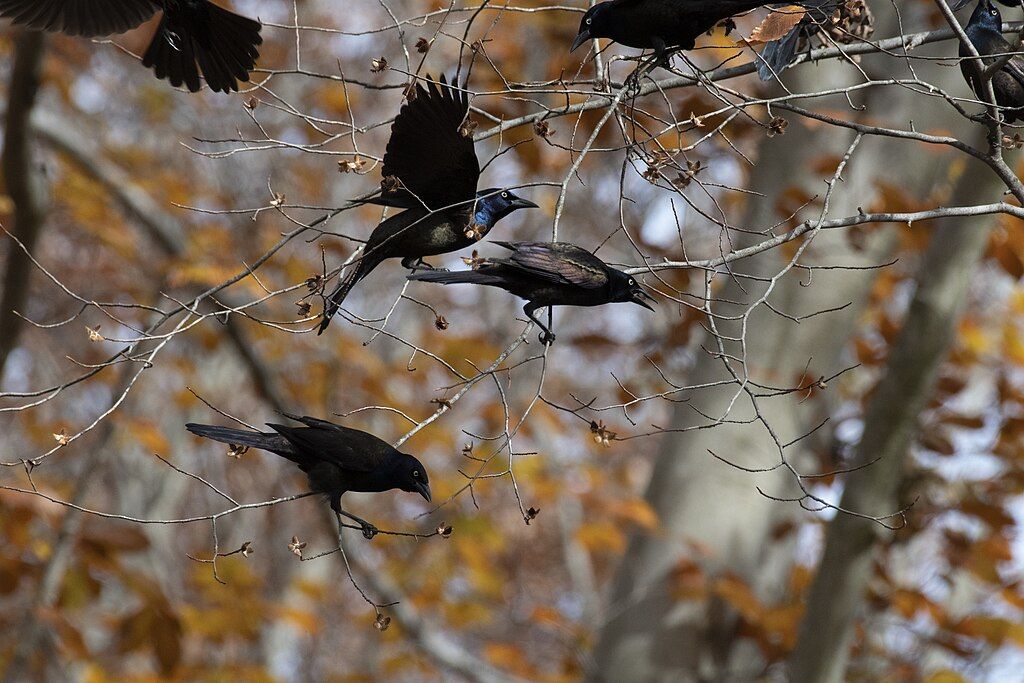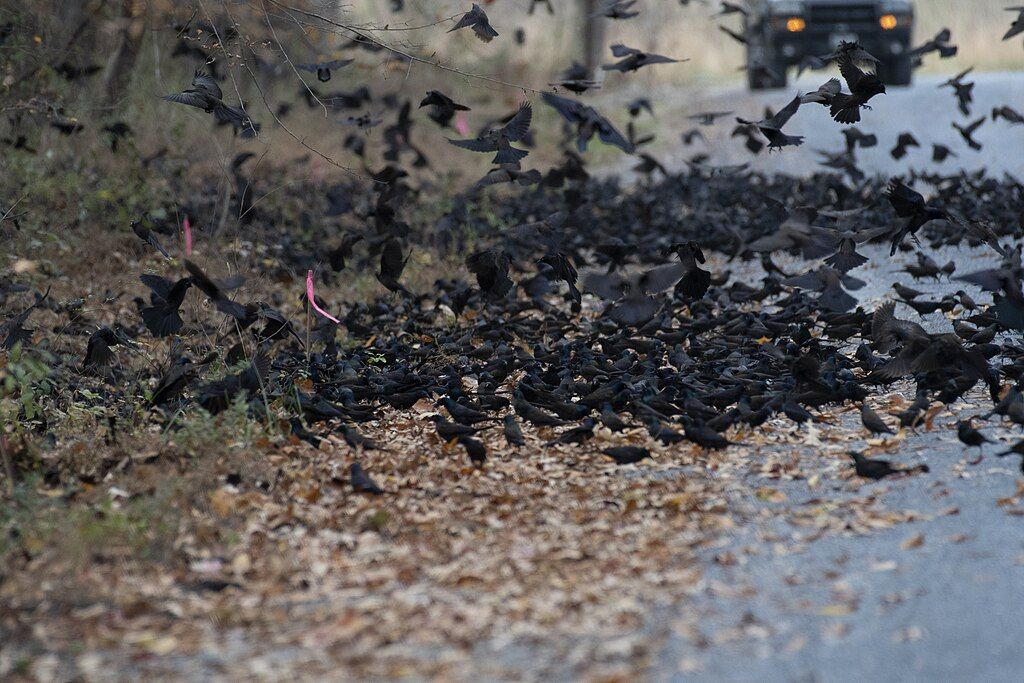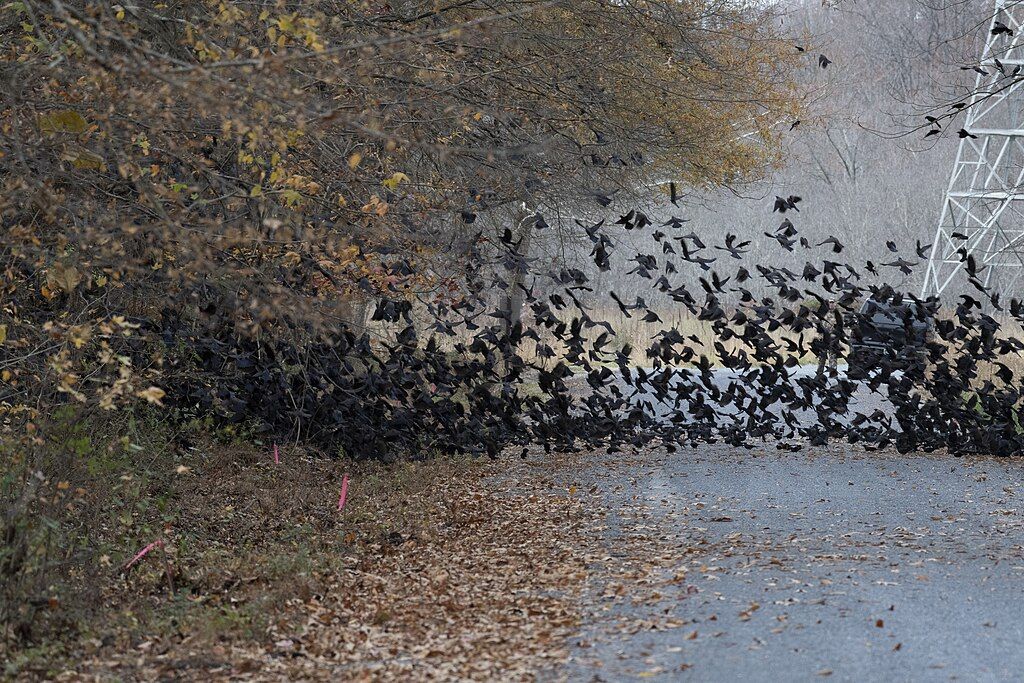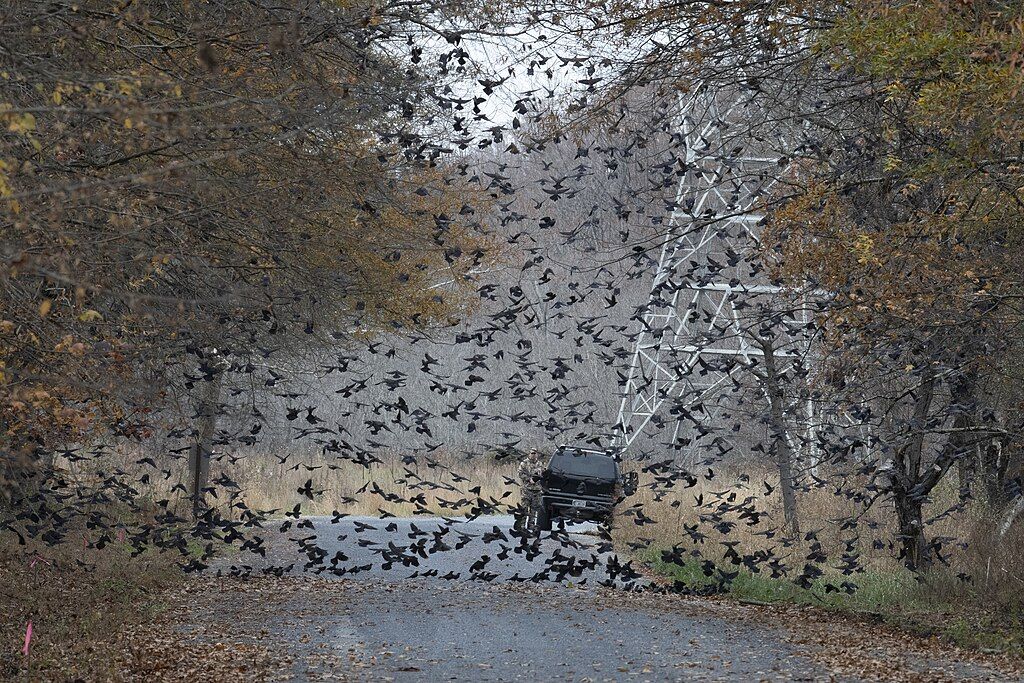
18 October 2023
This month a flock of 100 to 200 common grackles has been hanging out at Frick Park, chattering in the trees and swirling in a dense flock whenever they’re disturbed. This is typical fall behavior for grackles and blackbirds but I wondered why they picked the park.
According to Birds of the World, common grackles (Quiscalus quiscula) are not very territorial during the breeding season and drop all rivalry in fall and winter. On migration and at overwintering sites they prefer to roost and feed in huge flocks, sometimes mixed with other blackbirds and some robins.
Common grackles roost near plentiful food but they don’t require wild places. Urban roosts are often favored on tree-lined streets or in parks. Their fall roosts in New Jersey can contain 3,000-500,000 birds (of which grackles comprise 33%).
This flock at Patuxent in Maryland looks to be 100% grackles.



Get To Know Nature in New Jersey shows what it’s like to be in the forest with hundreds of grackles.
The huge grackle flocks probably won’t stay in southwestern PA for the winter. By December they are further south, as shown on the eBird Dec-Feb map below.

But for now we have hundreds of grackles in the trees.
(credits are in the captions; click on the captions to see the originals)
Great video. I’m probably one of the few people who like grackles. I’m always glad to see them return in spring and the enormous flocks in fall are something to be experienced.
I also like grackles. (And starlings, too.) They’re pretty cool looking birds. I’m going to have to make a trip to Frick Park to see them soon.
Speaking of large flocks of birds, this is admittedly off topic, but there was a large, noisy gathering—maybe 100—of crows in trees and picking through trash bags at the intersection of Fair Oaks and Murdoch, near Wilkins, in Squirrel Hill yesterday between 5:30 and 6 p.m. Quite something to see and hear!
This is probably part of the flock of 2,500 I counted from my condo rooftop on Monday evening. The crows are building in numbers. More will come soon. We had 20,000 in town last December. And they’ll have to pick a different place to roost.